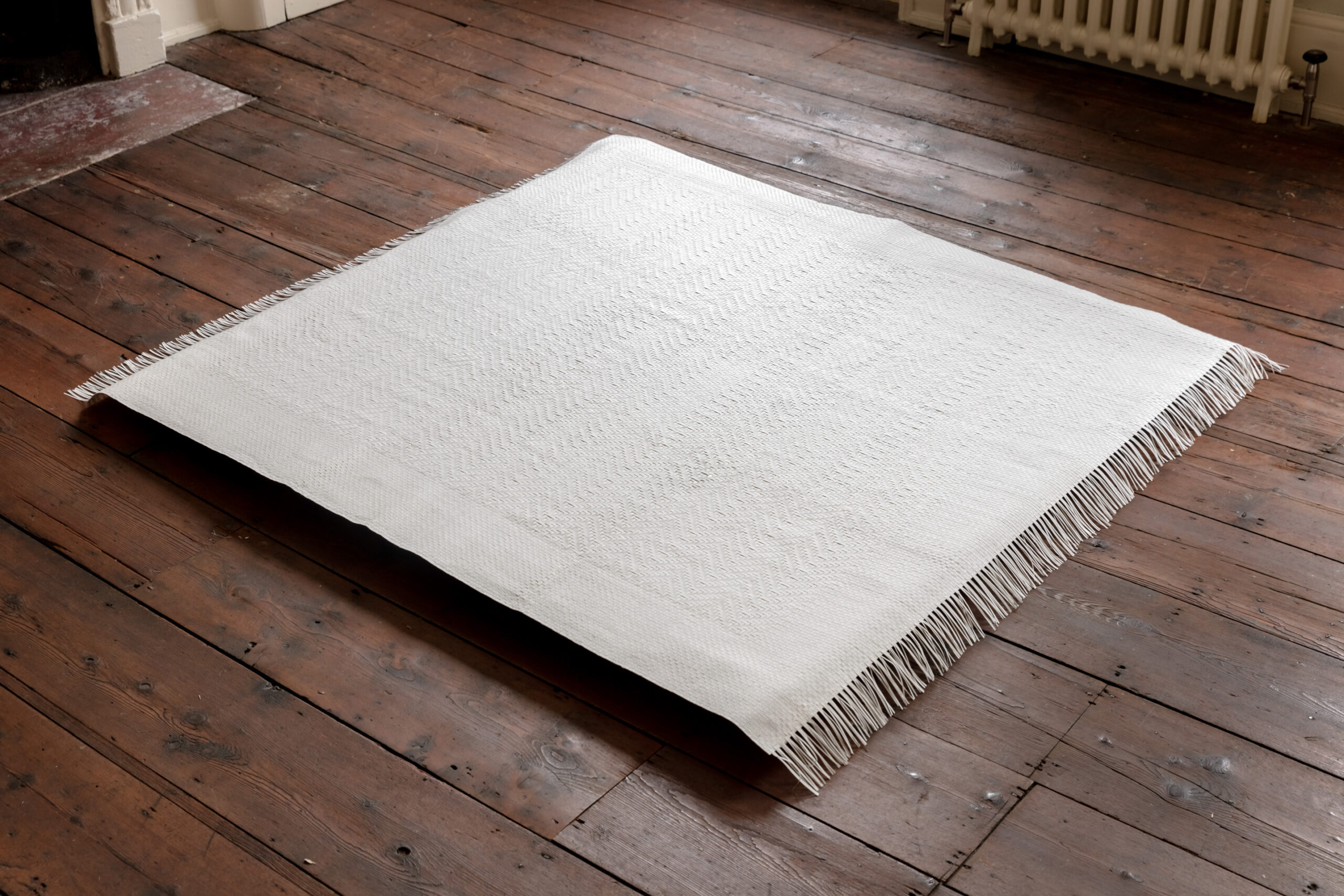Inés Cámara Leret’s Rock Paper Forest and Air Freshener Poems

This text was written by Lottie Roewedder, a Community Engagement Guide at Van Gogh House during the 2024 exhibition ‘Cycles‘
My name is Lottie, and I was a Community Engagement Guide for the exhibition ‘Cycles’ in 2024, where I had the opportunity to interview Inés Cámara Leret about her thoughts and inspiration behind her work in the exhibition: ‘Rock Paper Forest’ and ‘Air Freshener Poems’. Inés’ practice spans themes such as landscape consumption, history and nature. The focal organism of this body of work is the pine tree.
The pine tree was chosen for its historical and cultural significance. During the Spanish civil war a reforestation law was the only law that was agreed upon by the two sides, reflecting the significance of pine in society. Pine and eucalyptus are both species that can grow fast and are therefore important for the paper production industry, with much infrastructure for these industries in Catalonia. Greening landscapes was thought to represent progress, however it was impossible to achieve without costly irrigation, and subsequent change in land use towards a pine monoculture landscape. More recently pine trees have been used as a strategy in warfare. In Palestine, pine trees have been used to colonise space, making the soil too acidic and therefore unusable for Palestinian people. Viewing trees as a weapon of war as well as a form of desertification, makes trees and nature a complicated and less neutral reality.
Inés’ work invites us to think about how humans make landscapes more comfortable. Arid landscapes have been thought to be difficult places to exist. It is hard to exist in these landscapes at certain times of day, and planting pine trees has been seen as a method to lower the temperature of the environment. Planting trees also group sediment together and therefore solidifies the land, making the landscape more stable and useful. This process adds a roughness to the arid landscape and requires us to engage differently with it. It was also thought that if trees were added to the landscape, more rain would fall, making the environment less dry. This idea of creating lush forests in arid places reflects the concept of making landscapes more comfortable.
Some landscapes that we conceive as being natural are actually landscapes that have been made comfortable by humans. However, this landscape is still part of nature. When Inés was creating ‘Rock Paper Forest’ she tried paper glue to bring the strands together, however only wood glue worked, because after all the paper is wood. In the same way humans are nature. Viewing spaces, such as parks, as innocent natural spaces misses out on the heaviness of the landscape’s ideology. Someone has decided what a park should look like which conceals what was in that landscape before. Landscapes are also shaped by different forces. The areas next to London’s big well known parks for example are often more affluent, reflecting how these areas are not so innocent, but are created by an interplay of different socio-political forces. Landscape change is not new however, human history has changed the landscape countless times. Returning to a ‘pure’ landscape is therefore not possible. Instead, fixing our problems by continuing to transform the landscape is a pattern that has been followed for many years.
Both pieces invite the viewer to acknowledge the way that we engage with landscapes through capitalist consumption. ‘Air Freshener Poems’ explores the concept of buying an air freshener and therefore buying an experience that relates to a social class. Each pine rosin is a beautiful object, which obscures the exploitation of the pine tree that was involved in the process of obtaining the raw materials. In the same way that tourism is presented in a positive way, presented in a glossy brochure to those who participate in tourism, which obscures a much darker reality. One rosin is engraved with the scent ‘Ibiza Cocktails’ which hides the destructive elements to tourism for the local people and environment. Most tourism experiences do not involve engaging with the local culture and put a strain on local services and landscapes. Another rosin ‘Caribbean Colada’ obscures the colonial power dynamics at play between the Caribbean and the UK. Therefore, trees being used as weapons of warfare as well as the destructive consumption fuelled by capitalism, reflects the violent reality of landscapes.
‘Rock Paper Forest’ and ‘Air Freshener Poems’ are not a call to action but rather an invitation of reflection. ‘Rock Paper Forest’ acts as an anchor point on why we need to make things into pleasurable experiences, and invites us to think about how to engage with inherited landscapes. These art pieces are not trying to make our landscapes return to how it once was because we did not choose that landscape either, more to reflect on how landscapes change and how they are consumed.
Air Freshener Poem by Inés Cámara Leret Photo: Jack Elliott Edwards